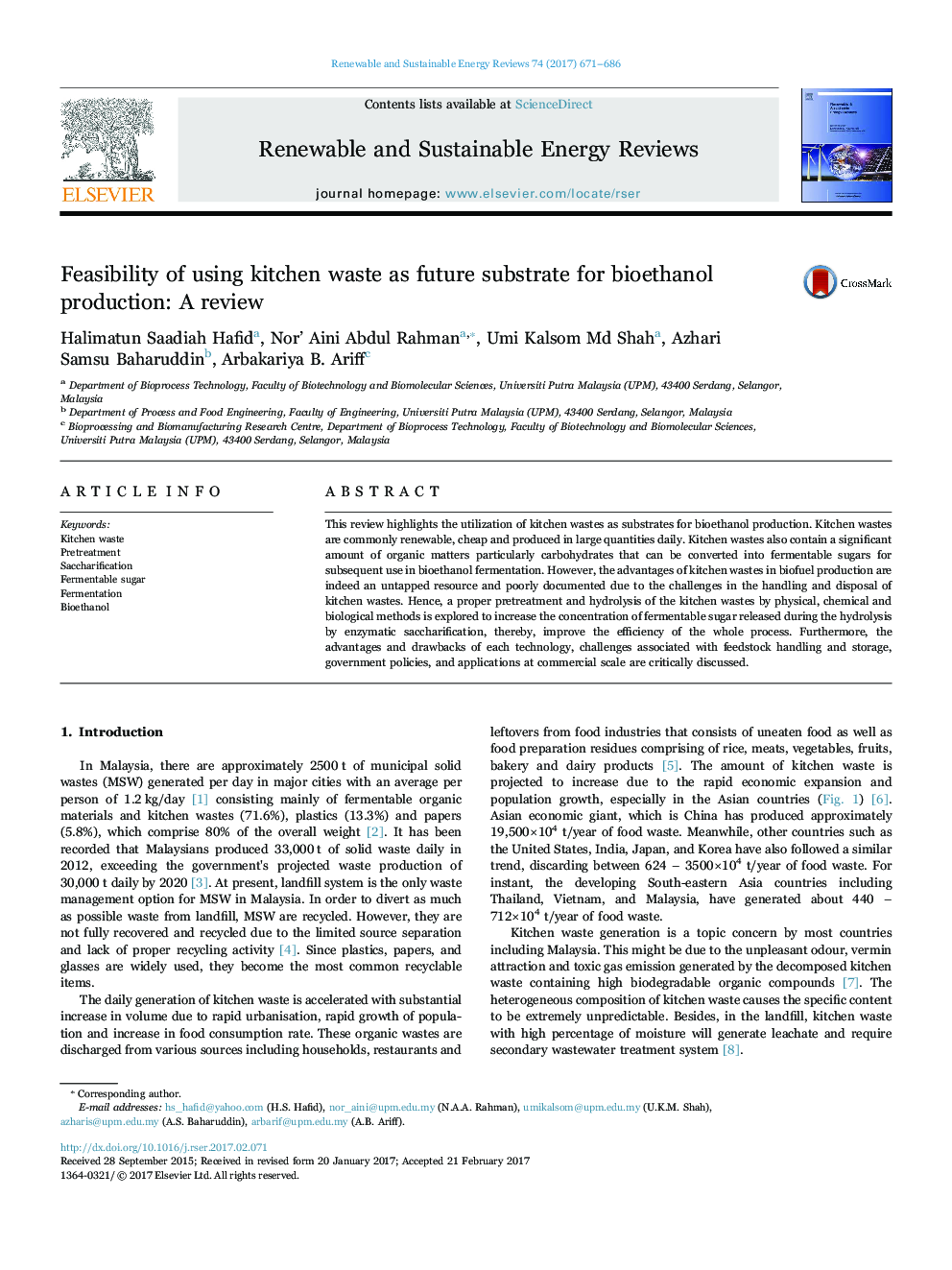| Article ID | Journal | Published Year | Pages | File Type |
|---|---|---|---|---|
| 5483148 | Renewable and Sustainable Energy Reviews | 2017 | 16 Pages |
Abstract
This review highlights the utilization of kitchen wastes as substrates for bioethanol production. Kitchen wastes are commonly renewable, cheap and produced in large quantities daily. Kitchen wastes also contain a significant amount of organic matters particularly carbohydrates that can be converted into fermentable sugars for subsequent use in bioethanol fermentation. However, the advantages of kitchen wastes in biofuel production are indeed an untapped resource and poorly documented due to the challenges in the handling and disposal of kitchen wastes. Hence, a proper pretreatment and hydrolysis of the kitchen wastes by physical, chemical and biological methods is explored to increase the concentration of fermentable sugar released during the hydrolysis by enzymatic saccharification, thereby, improve the efficiency of the whole process. Furthermore, the advantages and drawbacks of each technology, challenges associated with feedstock handling and storage, government policies, and applications at commercial scale are critically discussed.
Related Topics
Physical Sciences and Engineering
Energy
Renewable Energy, Sustainability and the Environment
Authors
Halimatun Saadiah Hafid, Nor' Aini Abdul Rahman, Umi Kalsom Md Shah, Azhari Samsu Baharuddin, Arbakariya B. Ariff,
